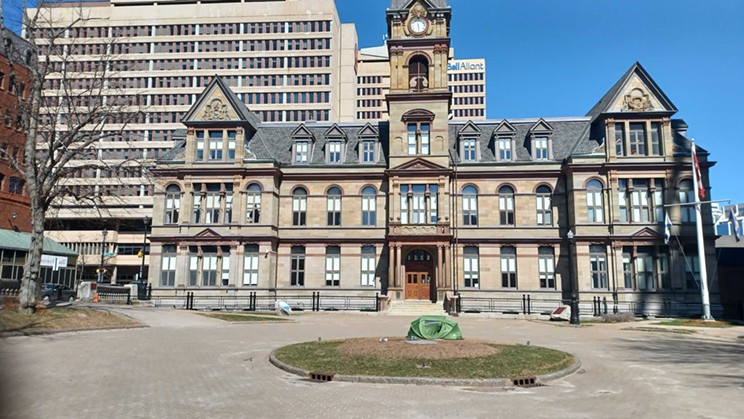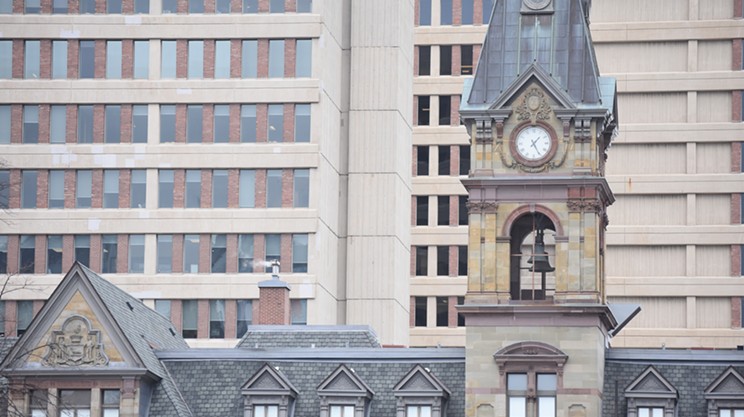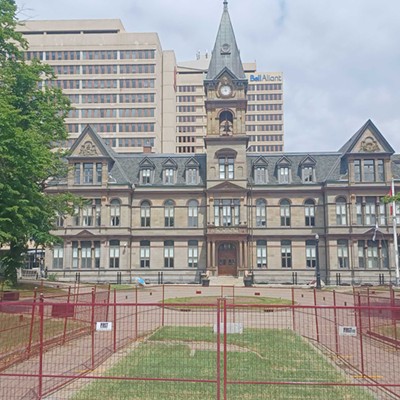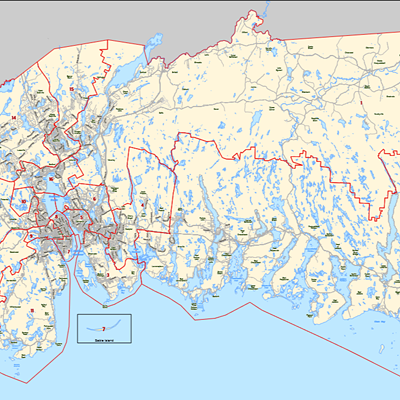The city of Halifax made a major advance in the agonizingly slow process of police reform on Wednesday, Feb. 28, when councillors had the city’s first ever Department of Community Safety budget debate.
The issue of police reform has been a hot topic in Halifax in recent years, with the Wortley Report, the Defunding the Police Report and the Mass Casualty Commission all screaming about the need for systemic changes in how we approach public safety. The very short version of those three reports is that the police do too many things, and this over-reliance on police is causing a huge fiscal and administrative burden on police forces, bureaucracies and the public, while at the same time leading to bad results. True reform may well mean some changes in the police department, but more important is reconsidering the city’s basic approach to protecting the public—the Community Safety Department was created last year to do that.
For example, one of the of the things Community Safety is asking for this budget season is a bylaw officer to help with managing complaints about Halifax’s unhoused population. Because this is a lower-level intervention than the police, it’s cheaper to hire a bylaw officer than a police officer. And letting the bylaw officer handle these complaints frees up police patrol hours to do things like catching bad guys or giving out tickets. But not actually giving out tickets; that work is also better suited to a lower-level officer than a full on patrol constable, so the Department of Community Safety is looking at doing traffic enforcement to lower the cost of that, too.
Because Community Safety is a new department, it doesn’t have a funding history for councillors to feel protective about, and a lot of spending requests got deferred to the budget adjustment list meeting instead of being approved at this meeting: Five crossing guards, the new JustFOOD spending, new hires to help support the city’s housing and homelessness strategies and emergency management office. All of these additional spending requests were grouped together and put on the floor by councillor Waye Mason. (Since policies are like pack animals, grouping policies together helps prevent young policies from being picked off by fiscal predators at their most vulnerable infant stage.) These budget overs were then subsequently added to the budget adjustment list for consideration later in the process, when there’s a better sense of how much spending flexibility—and political appetite—councillors have.
This debate closed out with a contentious motion from councillor Sam Austin. Earlier in the meeting, during the debate on the department’s new budget, councillors heard that this summer we are expecting anywhere from 100 to 400 people to be outside sleeping rough. With those predicted numbers and the estimated timelines of planned shelters that are in the works, like the pallet shelters, Austin said that meant Halifax would likely end up right back where it started with a proliferation of sanctioned park encampments—even as this week the city’s eviction deadline arrived for some of the current encampments.
Councillor Sam Austin called it insanity that council was making the same decisions they had in the past, but also somehow expecting a different result. He suggested that if councillors want to keep parks like Grand Parade accessible, they should set up a managed encampment to encourage people to go there. He put forward a motion asking for a report to see what creating a managed camp would look like and what it cost to run.
Support was slow in coming to Austin’s motion. Councillors didn’t seem to want to admit defeat, but Austin said unless we put fences up around all the parks the city has just evicted, they’ll all be full of tents again this time next year. Because councillors want to avoid that, and because they want to be compassionate (and because the courts say people can’t be evicted with no where to go), Austin’s motion got support. Now city staff will look into what it would take to make sure that everyone forced to sleep on city land in a tent at least has water, a bathroom of some kind and power.
Almost one year to the day after Halifax’s director of housing and homelessness, Max Chauvin, warned councillors we may have to learn how refugee camps work, Austin’s motion to figure out how to run managed encampments passed through council. This passed with only David Hendsbee and Trish Purdy voting no. So the city will apparently be debating how to best adapt to premier Tim Houston’s failures to respond to the housing crisis during the budget adjustment list debates.


















